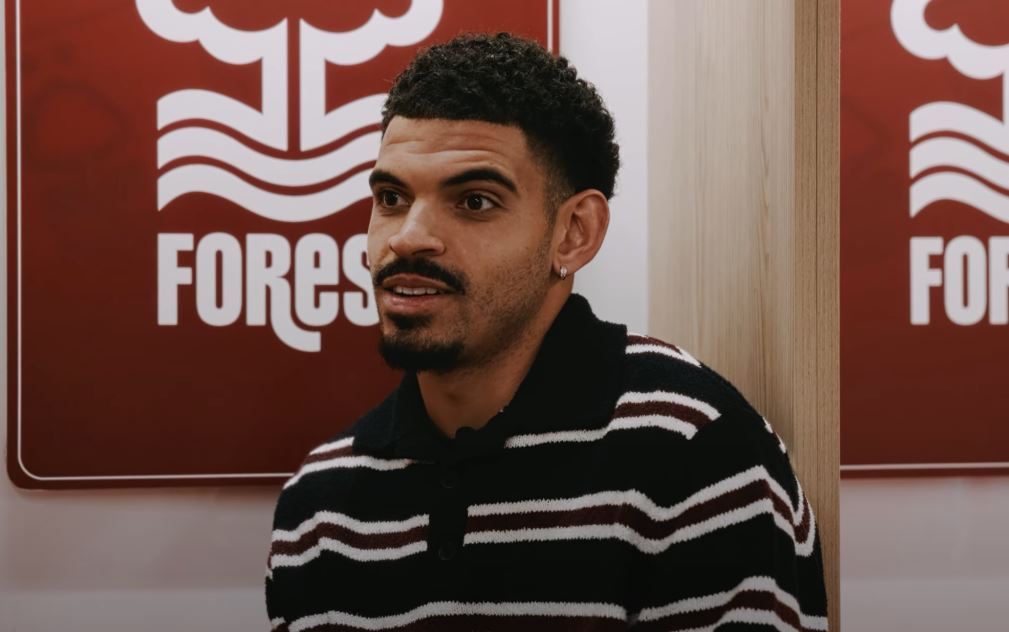More than just a pay increase, Morgan Gibbs-White’s recently signed contract with Nottingham Forest is a statement of intent from a team determined to keep its best player. At £100,000 a week, he has surpassed previous wage structures to become the club’s highest-paid player, solidifying Forest’s place in the conversation of teams looking to balance ambition with financial strength.
Gibbs-White has developed into Forest’s creative core since joining for a record £42.5 million from Wolverhampton Wanderers in 2022. His 118 appearances with 18 goals and 28 assists hardly begin to capture his impact. He sets the pace, connects plays, and adds creative bursts of energy that have come to define the team’s performance under duress. In a market where talented midfielders are highly sought after, the decision to increase his pay was remarkably successful in both rewarding performance and ensuring stability.
Bio Data and Professional Information
| Category | Details |
|---|---|
| Full Name | Morgan Anthony Gibbs-White |
| Date of Birth | January 27, 2000 |
| Age | 25 |
| Birthplace | Stafford, England |
| Nationality | English |
| Position | Attacking Midfielder |
| Current Club | Nottingham Forest |
| Shirt Number | 10 |
| Annual Salary (2025–26) | £5,200,000 |
| Weekly Wage | £100,000 |
| Contract Duration | 2025–2028 |
| Previous Annual Salary | £4,160,000 |
| Estimated Market Value | £60 million |
| Major Honour | FIFA U-17 World Cup Winner (2017) |
| Professional Debut | 2017, Wolverhampton Wanderers |
| Reference | Nottingham Forest Official Website |
This contract negotiation was not your typical one. The summer became a test of Forest’s resolve when Tottenham tried to activate a rumoured £60 million release clause. Owner Evangelos Marinakis greatly decreased the chance of losing Gibbs-White before the team could enjoy the benefits of his prime years by acting quickly and decisively, in addition to blocking Spurs’ approach. Although there are a lot of similarities to Jack Grealish’s time at Aston Villa prior to his eventual transfer to Manchester City, Forest’s audacious move indicates that they are committed to changing that well-known narrative.
Not just the player benefits greatly from the pay jump itself. It establishes a standard for the team’s future transactions by demonstrating to prospective players that Forest is willing to pay for loyalty and performance at levels comparable to those of conventional top-six teams. It serves as an encouraging example of what can be accomplished at the City Ground for the team’s younger players.
Considering his professional path, the change is nearly cinematic. Gibbs-White made about £1,900 a week when he first started playing for Wolves. That number has increased by more than fifty times in less than ten years. Few journeys more vividly capture the modern football climb, where early potential can produce both sporting success and generational wealth if properly nurtured.
Forest’s dedication goes beyond the field. Gibbs-White is a marketable character because he is young, English, and articulate, and his playing style appeals to broadcasters and fans alike. By keeping him, Forest protects a valuable commercial asset in addition to their midfield inventiveness. Because of this dual value—sporting and branding—his contract was never solely based on statistics.
He is “a winner, talented, ambitious, fearless, and proud,” according to owner Marinakis, qualities that are exactly in line with Forest’s vision for the future. The team plans to build on their seventh-place finish from the previous season, which guaranteed them a spot in Europe. They are establishing themselves as a team that can contend for honors rather than just making it through the Premier League with Gibbs-White at its center.
This tactic reflects a more general change in the league. Clubs outside of the traditional elite are keeping their best players and relying on performance growth to offset the windfalls from transfers. With Bruno Guimarães for Newcastle, Declan Rice for West Ham (until the price was too good to refuse), and now Gibbs-White for Forest.
Football wages will undoubtedly come up again in society, with some people questioning the ethics of six-figure weekly salaries. However, a player who generates results, attracts fans, and boosts commercial revenue is essentially an asset worth safeguarding in a multibillion-pound sport. Even though it made headlines, Gibbs-White’s deal makes strategic sense when seen as an investment in long-term success.
It’s possible that this contract still offers good value for the money. In contrast to what competitors might have offered in subsequent windows, Forest will have locked in their talisman at a rate that may appear surprisingly affordable if Gibbs-White maintains or even increases his current rate of production.
The agreement provides Gibbs-White with more than just financial stability. In the same way that Harry Kane at Tottenham or Steven Gerrard at Liverpool shaped the club’s identity, it gives him the opportunity to become one of the most significant figures in Forest’s recent history. His performances and leadership in the upcoming years will either support or contradict the club’s audacious wager on him.
In the end, ambition is more important here than pay. The message that Forest is prepared to shape its own future with Morgan Gibbs-White at its core is conveyed to supporters, rivals, and players alike by their refusal to back down in the face of greater clubs’ interest. The most obvious indication that Nottingham Forest wants to compete in the upcoming battles, rather than merely take part in them, is their commitment to pay £100,000 per week.




